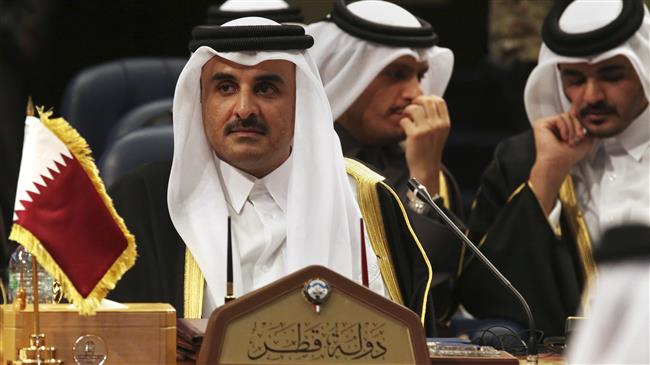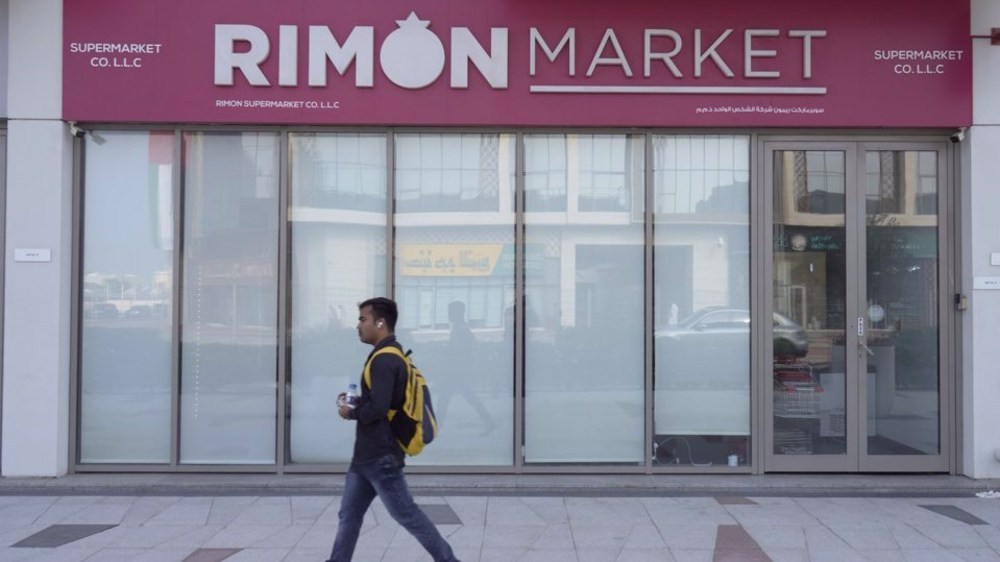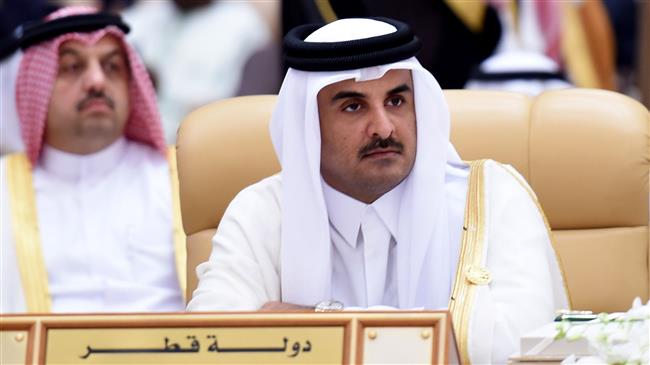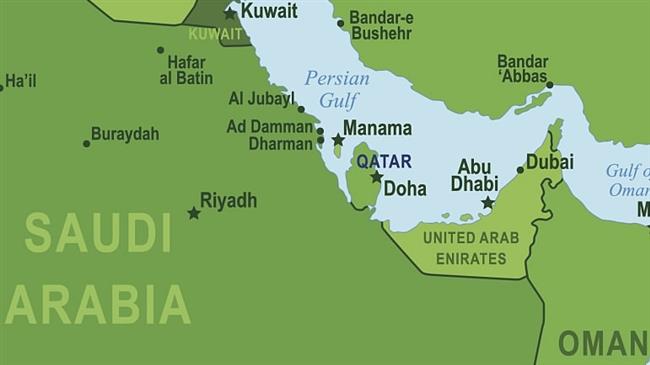Qatar: Continuation of crisis reflects [P]GCC’s failure
Qatari Emir Sheikh Tamim bin Hamad Al Thani says the continuation of a dispute initiated by a Saudi-led quartet of Arab states with his country has weakened the [Persian] Gulf Cooperation Council ([P]GCC) and marks its “failure.”
“It is very regrettable that the continuation of the [Persian] Gulf crisis exposed the failure of the [Persian] Gulf Cooperation Council... which has weakened its ability to face challenges and threats and marginalized its role in the region,” he said in a speech to Qatar’s Advisory Council (Shura Council) in Doha on Tuesday.
Sheikh Tamim also expressed hope the Persian Gulf crisis would pass.
“History teaches us that crises pass; but if they are handled badly, then this may leave traces that last for a long time,” the Qatari emir said.
In June 2017, Saudi Arabia, Egypt, Bahrain, and the United Arab Emirates severed their diplomatic ties with Qatar, accusing Doha of supporting terrorism but widely seen to have actually been angered by its independent foreign policy.
The four countries also imposed a land, sea, and air blockade on import-dependent Qatar.
Except for Egypt, all of those countries are members of the [P]GCC, to which Qatar is also a member. The other two members of the body, namely Kuwait and Oman, took a neutral stance.
Regional powerhouse Turkey also took Qatar’s side.
The Saudi-led bloc also presented Qatar with a list of demands and gave it an ultimatum to comply with them. That deadline came and went as Doha refused to meet the demands or drop its line of foreign policy. Qatar, however, consistently called for a peaceful resolution of the dispute.
In his Tuesday remarks, the Qatari emir outlined his country’s economic achievements over the past year despite the political and economic boycott by the four fellow-Arab states, stressing that Doha would continue to develop its oil and gas industries.
He said Qatar’s economy had diversified and that its currency had preserved its value since the start of the dispute with the Saudi-led bloc of countries.
Qatar, he said, managed to grow its exports by 18 percent last year and slash spending by 20 percent.
VIDEO | Yemenis praise the military for its successful operations against Israel
VIDEO | Israel continues to bomb Gaza homes
VIDEO | An insider's view of the country: Meybod City in Yazd
‘All wars have rules. All of those rules have been broken’ by Israel
VIDEO | Report flags India’s violation of rights of Rohingya detainees
Turkey's foreign minister meets Syria's de facto leader in Damascus
VIDEO | US Syria plots
'Next to impossible' to rescue patients from Gaza's Kamal Adwan Hospital: Director















 This makes it easy to access the Press TV website
This makes it easy to access the Press TV website